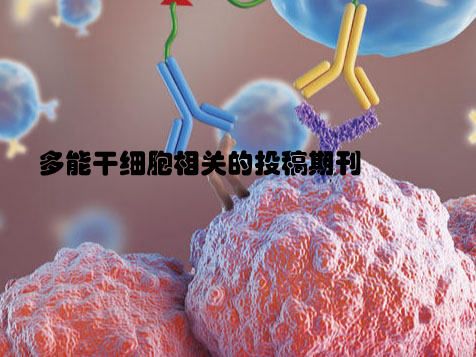Journal of Stem Cell Research & Therapy: Advancements in the Field of Pluripotent Stem Cells
In recent years, the study of pluripotent stem cells has garnered significant attention due to their potential in regenerative medicine and disease modeling. Pluripotent stem cells, including embryonic stem cells and induced pluripotent stem cells, possess the remarkable ability to differentiate into any cell type in the body. This article explores the recent advancements in the field of pluripotent stem cells and their implications for various medical applications.

Unraveling the Mechanisms of Pluripotency
Scientists have made substantial progress in unraveling the molecular mechanisms that underlie pluripotency. By understanding the intricate pathways and regulatory networks involved in maintaining the pluripotent state, researchers have been able to improve the efficiency of generating and manipulating pluripotent stem cells. This knowledge has paved the way for the development of novel strategies for inducing pluripotency and directing the differentiation of these cells into specific lineages.
Applications in Regenerative Medicine
Pluripotent stem cells hold immense promise for regenerative medicine, offering the potential to replace or repair damaged tissues and organs. Research in this area has focused on harnessing the differentiation capabilities of pluripotent stem cells to generate specialized cell types for transplantation, ultimately aiming to treat a wide range of degenerative diseases and injuries. Furthermore, the ability to derive patient-specific pluripotent stem cells opens up possibilities for personalized regenerative therapies.
Disease Modeling and Drug Discovery
Another exciting area of research involves the use of pluripotent stem cells to model human diseases and screen for potential therapeutic compounds. By generating disease-specific cell lines from pluripotent stem cells, scientists can replicate the pathological characteristics of various disorders in a laboratory setting. This approach not only provides valuable insights into disease mechanisms but also facilitates the identification of new drug candidates and the evaluation of their efficacy and safety.
Challenges and Ethical Considerations
Despite the immense potential of pluripotent stem cells, several challenges and ethical considerations remain. Issues such as tumorigenicity, genetic stability, and immune rejection pose significant hurdles for the clinical translation of pluripotent stem cell-based therapies. Furthermore, ethical debates surrounding the use of embryonic stem cells continue to influence the direction of stem cell research and therapy. Addressing these challenges is crucial for advancing the field while upholding ethical standards and patient safety.
Future Directions and Collaborative Efforts
Looking ahead, ongoing research efforts are aimed at refining the methodologies for generating and manipulating pluripotent stem cells, as well as addressing the aforementioned challenges. Additionally, interdisciplinary collaborations between scientists, clinicians, and regulatory authorities are essential for driving the translation of pluripotent stem cell-based therapies from the laboratory to the clinic. With continued progress and collective engagement, the field of pluripotent stem cells is poised to revolutionize the landscape of regenerative medicine and disease treatment.
As the field of pluripotent stem cells continues to evolve, it is evident that the diverse applications and implications of these remarkable cells are shaping the future of medicine. With ongoing advancements and collaborative efforts, pluripotent stem cells hold the potential to revolutionize regenerative medicine and contribute to the development of innovative therapies for various debilitating conditions.



